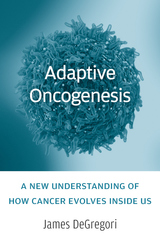
Popular understanding holds that genetic changes create cancer. James DeGregori uses evolutionary principles to propose a new way of thinking about cancer’s occurrence. Cancer is as much a disease of evolution as it is of mutation, one in which mutated cells outcompete healthy cells in the ecosystem of the body’s tissues. His theory ties cancer’s progression, or lack thereof, to evolved strategies to maximize reproductive success.
Through natural selection, humans evolved genetic programs to maintain bodily health for as long as necessary to increase the odds of passing on our genes—but not much longer. These mechanisms engender a tissue environment that favors normal stem cells over precancerous ones. Healthy tissues thwart cancer cells’ ability to outcompete their precancerous rivals. But as our tissues age or accumulate damage from exposures such as smoking, normal stem cells find themselves less optimized to their ecosystem. Cancer-causing mutations can now help cells adapt to these altered tissue environments, and thus outcompete normal cells. Just as changes in a species’ habitat favor the evolution of new species, changes in tissue environments favor the growth of cancerous cells.
DeGregori’s perspective goes far in explaining who gets cancer, when it appears, and why. While we cannot avoid mutations, it may be possible to sustain our tissues’ natural and effective system of defense, even in the face of aging or harmful exposures. For those interested in learning how cancers arise within the human body, the insights in Adaptive Oncogenesis offer a compelling perspective.
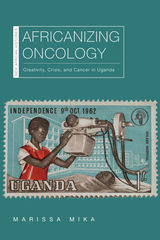

In 1985 the media announced a new therapy for cancer. It was expensive, labor-intensive, and toxic--but, they said, it worked. How it worked is the story Ilana Löwy tells in Between Bench and Bedside, a compelling account of the clinical trials of interleukin-2 at a major French cancer hospital. Her book offers a remarkable insider's view of the culture of clinical experimentation in oncology--and of how this culture affects the development of new treatments for cancer.
Löwy, a historian of science who trained as an immunologist, makes the life of the laboratory and the hospital comprehensible and immediate. Before immersing us in the clinical drama, she fills in the history behind the action--a background of chemotherapy and radiation, controlled clinical trials, and the long line of immunological approaches that finally led to interleukin-2. The story then shifts to the introduction of interleukin-2 in a cancer ward. Löwy conveys the clinical investigation as a complex, multilayered phenomenon that defies the stereotypes of modern biomedicine. In this picture, the miracle-makers and arrogant, self-centered professionals of myth give way to moving images of real people negotiating the tensions between institutional and professional constraints, the search for a scientific breakthrough, and the obligation to alleviate the suffering of a patient. The result is a rare firsthand look at the multiple factors that shape real-life clinical experiments and the institutional tangle and emotional muddle that surround such trials--an invaluable view at a time when medicine is undergoing such great and confusing changes.
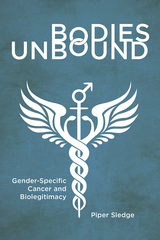
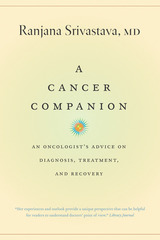
With candor and compassion, Srivastava provides an approachable and authoritative reference. She begins with the big questions, like what cancer actually is, and she moves on to offer very practical advice on how to find an oncologist, what to expect during and after treatments, and how to manage pain, diet, and exercise. She discusses in detail the different therapies for cancers and why some cancers are inoperable, and she skillfully addresses the emotional toll of the disease. She speaks clearly and directly to cancer patients, caretakers, and their loved ones, offering straightforward information and insight, something that many oncologists can’t always convey in the office.
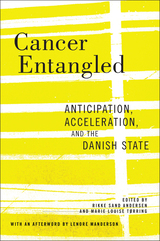

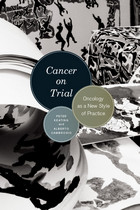
In Cancer on Trial Peter Keating and Alberto Cambrosio explore how practitioners established a new style of practice, at the center of which lies the cancer clinical trial. Far from mere testing devices, these trials have become full-fledged experiments that have redefined the practices of clinicians, statisticians, and biologists. Keating and Cambrosio investigate these trials and how they have changed since the 1960s, all the while demonstrating their significant impact on the progression of oncology. A novel look at the institution of clinical cancer research and therapy, this book will be warmly welcomed by historians, sociologists, and anthropologists of science and medicine, as well as clinicians and researchers in the cancer field.
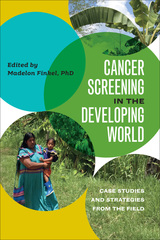
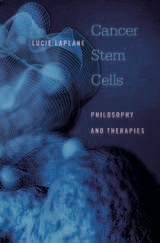
An innovative theory proposes a new therapeutic strategy to break the stalemate in the war on cancer. It is called cancer stem cell (CSC) theory, and Lucie Laplane offers a comprehensive analysis, based on an original interdisciplinary approach that combines biology, biomedical history, and philosophy.
Rather than treat cancer by aggressively trying to eliminate all cancerous cells—with harmful side effects for patients—CSC theory suggests the possibility of targeting the CSCs, a small fraction of cells that lie at the root of cancers. CSCs are cancer cells that also have the defining properties of stem cells—the abilities to self-renew and to differentiate. According to this theory, only CSCs and no other cancer cells can induce tumor formation.
To date, researchers have not agreed on the defining feature of CSCs—their stemness. Drawing from a philosophical perspective, Laplane shows that there are four possible ways to understand this property: stemness can be categorical (an intrinsic property of stem cells), dispositional (an intrinsic property whose expression depends on external stimuli), relational (an extrinsic property determined by a cell’s relationship with the microenvironment), or systemic (an extrinsic property controlled at the system level). Our ability to cure cancers may well depend upon determining how these definitions apply to different types of cancers.
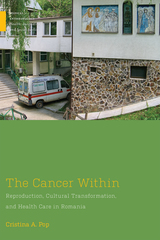
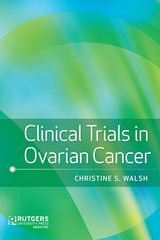
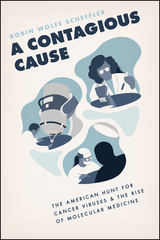
A Contagious Cause is the first book to trace the century-long hunt for a human cancer virus in America, an effort whose scale exceeded that of the Human Genome Project. The government’s campaign merged the worlds of molecular biology, public health, and military planning in the name of translating laboratory discoveries into useful medical therapies. However, its expansion into biomedical research sparked fierce conflict. Many biologists dismissed the suggestion that research should be planned and the idea of curing cancer by a vaccine or any other means as unrealistic, if not dangerous. Although the American hunt was ultimately fruitless, this effort nonetheless profoundly shaped our understanding of life at its most fundamental levels. A Contagious Cause links laboratory and legislature as has rarely been done before, creating a new chapter in the histories of science and American politics.
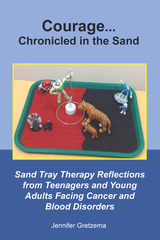
The sand trays and stories in this book were created by patients and families living with Cancer and Blood Disorders. Their expressions, created in the sand and conveyed through the written word, provide insight into their world. Sand tray therapy provides a sacred space to process experiences using symbols instead of language.
This collection of photos and personal stories was compiled so that other patients, their families, and their friends can share the authors’ journeys.
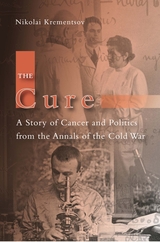
In 1946, Nina Kliueva and Grigorii Roskin announced the discovery of a preparation able to "dissolve" tumors in mice. Preliminary clinical trials suggested that KR, named after its developers, might work in humans as well. Media hype surrounding KR prompted the U.S. ambassador to the Soviet Union to seek U.S.-Soviet cooperation in perfecting the possible cure. But the escalating Cold War gave this American interest a double edge. Though it helped Kliueva and Roskin solicit impressive research support from the Soviet leadership, including Stalin, it also thrust the couple into the center of an ideological confrontation between the superpowers. Accused of divulging "state secrets" to America, the couple were put on a show trial, and their "antipatriotic sins" were condemned in Soviet stage and film productions.
Parlaying their notoriety into increased funding, Kliueva and Roskin continued their research, but envious colleagues discredited their work and took over their institute. For years, work on KR languished and ceased entirely with the deaths of Kliueva and Roskin. But recently, the Russian press reported that work on KR has begun again, reopening this illuminating story of the intersection among Cold War politics, personal ideals, and biomedical research.

Approximately eight percent of our DNA contains retroviral sequences that are millions of years old. Through engaging stories of scientific discovery, Anna Marie Skalka explains our evolving knowledge of these ancient denizens of the biosphere and how this understanding has significantly advanced research in genetic engineering, gene delivery systems, and precision medicine.
Discovering Retroviruses begins with the pioneer scientists who first encountered these RNA-containing viruses and solved the mystery of their reproduction. Like other viruses, retroviruses invade the cells of a host organism to reproduce. What makes them “retro” is a unique process of genetic information transfer. Instead of transcribing DNA into RNA as all living cells do, they transcribe their RNA into DNA. This viral DNA is then spliced into the host’s genome, where the cell’s synthetic machinery is co-opted to make new virus particles. The 100,000 pieces of retroviral DNA in the human genome are remnants from multiple invasions of our ancestors’ “germline” cells—the cells that allow a host organism to reproduce. Most of these bits of retroviral DNA are degenerated fossils, but some have been exploited during evolution, with profound effects on our physiology.
Some present-day circulating retroviruses cause cancers in humans and other animals. Others, like HIV, cause severe immunodeficiencies. But retroviruses also hold clues to innovative approaches that can prevent and treat these diseases. In laboratories around the world, retroviruses continue to shed light on future possibilities that are anything but “retro.”
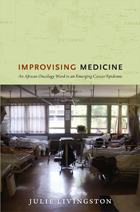
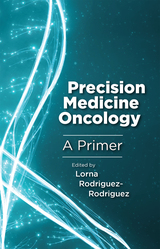
Precision Medicine Oncology: A Primer is a concise review of the fundamental principles and applications of precision medicine, intended for clinicians, particularly those working in oncology. It provides an accessible introduction to the technological advances in DNA and RNA sequencing, gives a detailed overview of approaches to the interpretation of molecular test results and their point-of-care implementation for individual patients, and describes innovative clinical trial designs in oncology as well as characteristics of the computational infrastructures through which massive quantities of data are collected, stored, and used in precision medicine oncology.
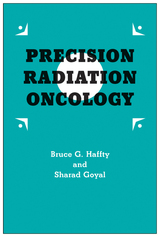
By describing current existing clinical and pathologic features, and focusing on the ability to improve outcomes in cancer using radiation therapy, this book discusses incorporating novel genomic- or biology-based biomarkers in the treatment of patients moving radiation oncology into precision/personalized medicine. Precision Radiation Oncology provides readers with an overview of the new developments of precision medicine in radiation oncology, further advancing the integration of new research findings into individualized radiation therapy and its clinical applications.
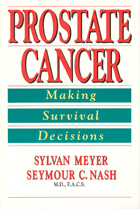
Thoroughly researched and imbued with great sensitivity, Prostate Cancer: Making Survival Decisions is the most informative and illuminating book about prostate cancer available. Not just an indispensable tool for those who have been diagnosed or are at risk, this is an important guide for anyone who seeks a better understanding of this enigmatic disease and the controversies surrounding it.

Although chemotherapy harms the immune system and is increasingly demonstrated to be an ineffective long-term cure for the vast majority of cancers, it remains the standard treatment for most cancer patients. Ruzic, a former scientific magazine publisher and originator of a science center, refused to accept this status quo, and instead plunged into the world of cutting-edge treatments, exploring the frontiers of cancer science with revolutionary results.
Ruzic went on the offensive: visiting scores of laboratories, gathering information, talking to researchers, and effectively becoming his own patient-care advocate. This book presents his findings. A scathing critique of the chemotherapy culture as well as unscientific "alternative" therapies, the book endorses state-of-the-art molecularly based technologies, making it an illuminating and necessary read for anyone interested in cancer research, especially patients and their families and physicians.
Neil Ruzic was expected to die within two years of his initial diagnosis. Five years later he has been declared cancer-free and considers himself cured.

READERS
Browse our collection.
PUBLISHERS
See BiblioVault's publisher services.
STUDENT SERVICES
Files for college accessibility offices.
UChicago Accessibility Resources
home | accessibility | search | about | contact us
BiblioVault ® 2001 - 2024
The University of Chicago Press









